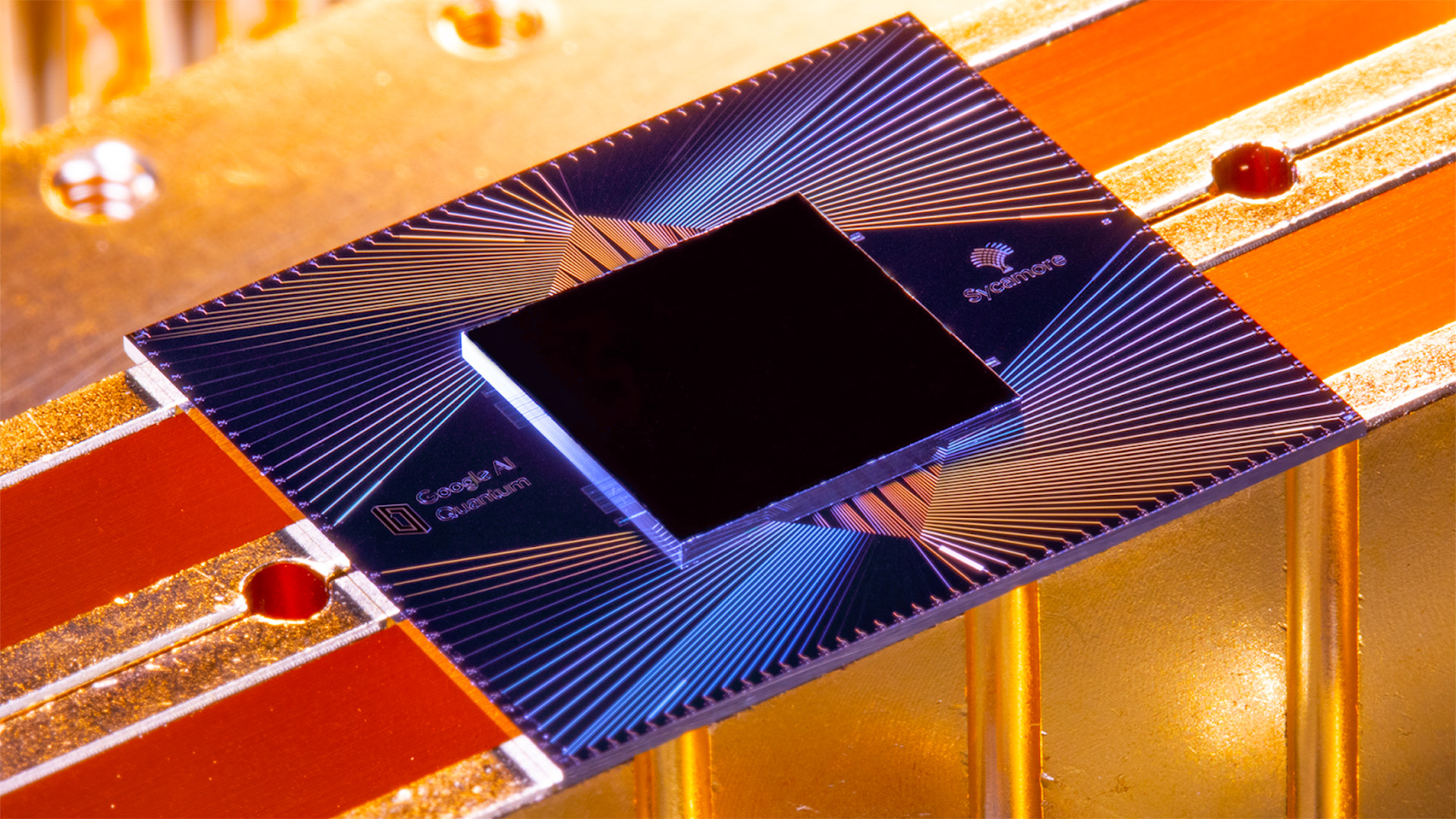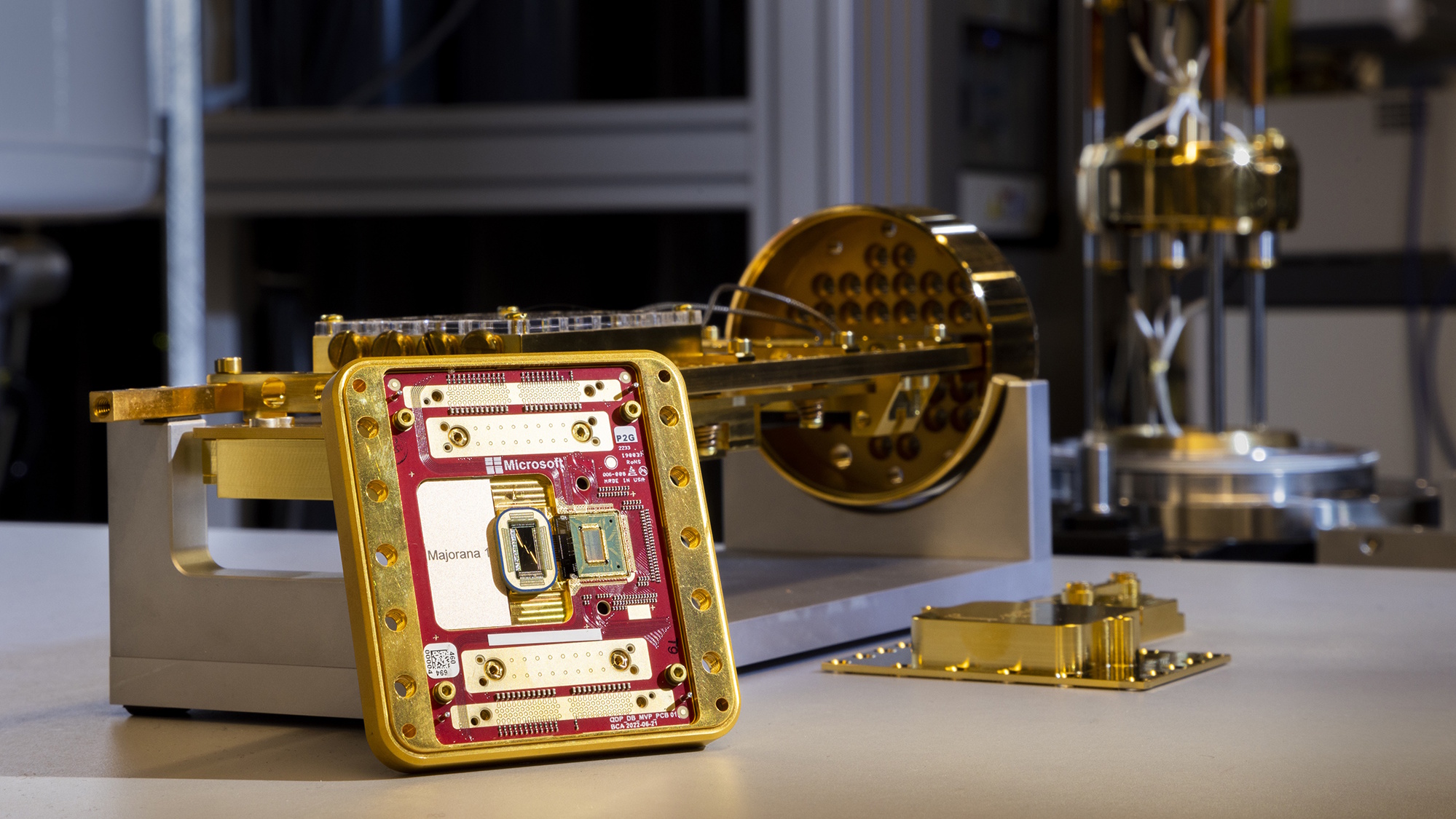
With AI taking the lion's share of the tech industry's attention, it can be easy to forget about quantum computing. For a long time we didn't really know whether quantum or AI would be first to make ripples, but AI's giant waves quickly put that question to bed. Progress with quantum has been ticking along in the background though and still holds the promise of some mind-boggling improvements in computation.
To this end, according to the Wall Street Journal, the Trump administration is in talks with several quantum computing companies, discussing the possibility of funding them in return for the US government becoming a shareholder. These companies include IonQ, Rigetti Computing and D-Wave Quantum, and apparently there's discussion of minimum funding awards of $10 million each, so say "people familiar with the matter."
Quantum computing hasn't seen the same kind of interest from the US government as AI and traditional chip production has; this is the first we've seen any big interest in quantum.
The US government took a stake in Intel earlier in the year, and now, finally, quantum might be getting a little bit of that state lovin'. Admittedly, if these discussions lead to action, it won't be anything close to the $8.9 billion the administration bought into Intel—these quantum companies aren't worth much more than that in total—but it won't be nothing, either.
Unlike traditional computers, quantum computers allow for some funky and counter-intuitive math, as they use qubits rather than bits, which can hold states that are in some ways both 0 and 1. They hold probability states rather than actual states: a qubit is either more likely or less likely to be 1 or 0.

This allows for said funky math which can allow for calculations to be performed orders of magnitudes quicker than traditional computers—potentially billions of times faster for some purposes. Those purposes are very limited, but there's hope that we might be able to expand the kinds of problems quantum computers are able to tackle over time.
The thing is, quantum is so different from traditional computing that it's often difficult to assess just how much progress is actually being made. For instance, Google recently claimed it's made a "major breakthrough" in quantum computing with an algorithm 13,000X faster than a traditional equivalent, but at least some physicists are sceptical.
Keep up to date with the most important stories and the best deals, as picked by the PC Gamer team.
We've seen plenty of scepticism surrounding quantum computing companies' claims, such as the pushback against Microsoft's claims about a supposed breakthrough with an "entirely new state of matter" used for its Majorana 1 chip.
Nevertheless, quantum holds such promise for revolutionary changes in some areas of computing, however soon that occurs, that I can see why the US government would want in on that action. Plus there are serious national security reasons why the government might want the US to spearhead quantum, such as the fact that quantum could potentially be incredibly powerful at cracking codes.
And sure, $10 million for each of these companies is peanuts compared to the billions that AI companies are dealing with, but it's more the gesture that's relevant here: the US government is leaning more into quantum. Even if useful quantum computing is a long way off, as Nvidia CEO Jensen Huang claimed at the start of the year, it's a positive sign.

1. Best gaming laptop: Razer Blade 16
2. Best gaming PC: HP Omen 35L
3. Best handheld gaming PC: Lenovo Legion Go S SteamOS ed.
4. Best mini PC: Minisforum AtomMan G7 PT
5. Best VR headset: Meta Quest 3

Jacob got his hands on a gaming PC for the first time when he was about 12 years old. He swiftly realised the local PC repair store had ripped him off with his build and vowed never to let another soul build his rig again. With this vow, Jacob the hardware junkie was born. Since then, Jacob's led a double-life as part-hardware geek, part-philosophy nerd, first working as a Hardware Writer for PCGamesN in 2020, then working towards a PhD in Philosophy for a few years while freelancing on the side for sites such as TechRadar, Pocket-lint, and yours truly, PC Gamer. Eventually, he gave up the ruthless mercenary life to join the world's #1 PC Gaming site full-time. It's definitely not an ego thing, he assures us.
You must confirm your public display name before commenting
Please logout and then login again, you will then be prompted to enter your display name.

